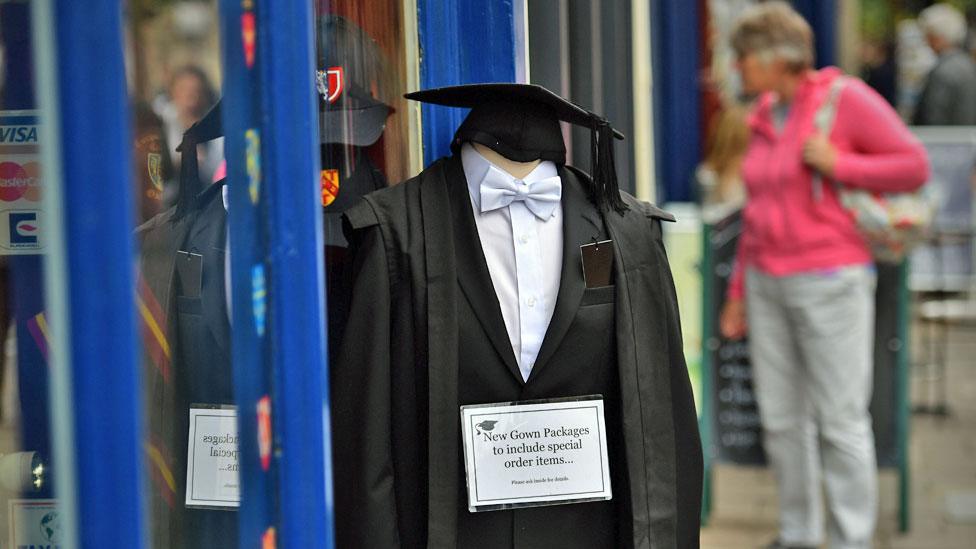Private school and Oxbridge 'take top jobs'
- Published
- comments
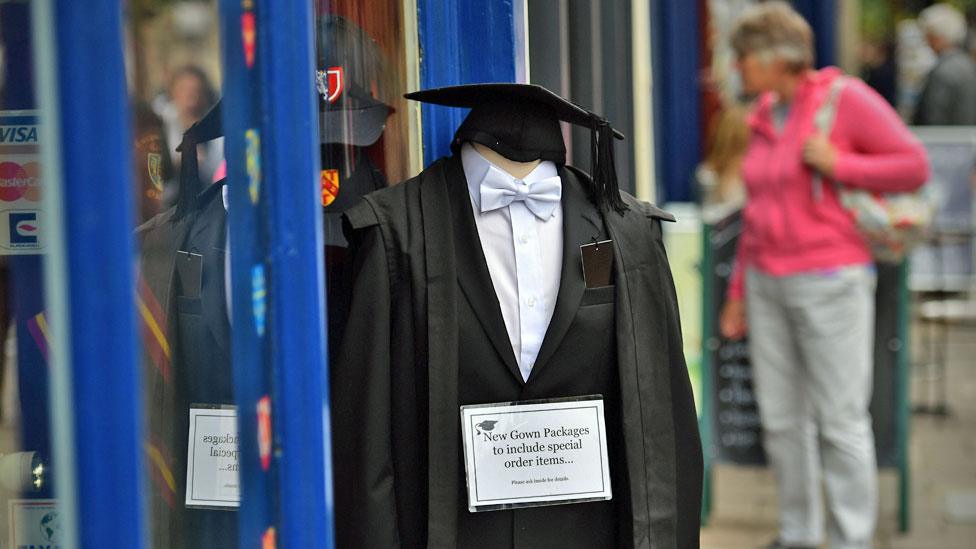
A social mobility charity says top professions in the UK are still unduly dominated by people who have gone through private schools and Oxford and Cambridge universities.
The Sutton Trust and Social Mobility Commission analysed the educational background of 5,000 people in top jobs.
It found these influential people were five times more likely to be privately educated than the average population.
Trust chairman Sir Peter Lampl warned of an "increasingly divided society".
The study, Elitist Britain, external, looked at the schools and universities attended by 5,000 high achievers at the top of business, politics, the media, public organisations, creative industries and sport.
It does not name individuals but concludes that "power rests with a narrow section of the population - the 7% who attend private schools and the 1% who graduate from Oxford and Cambridge".
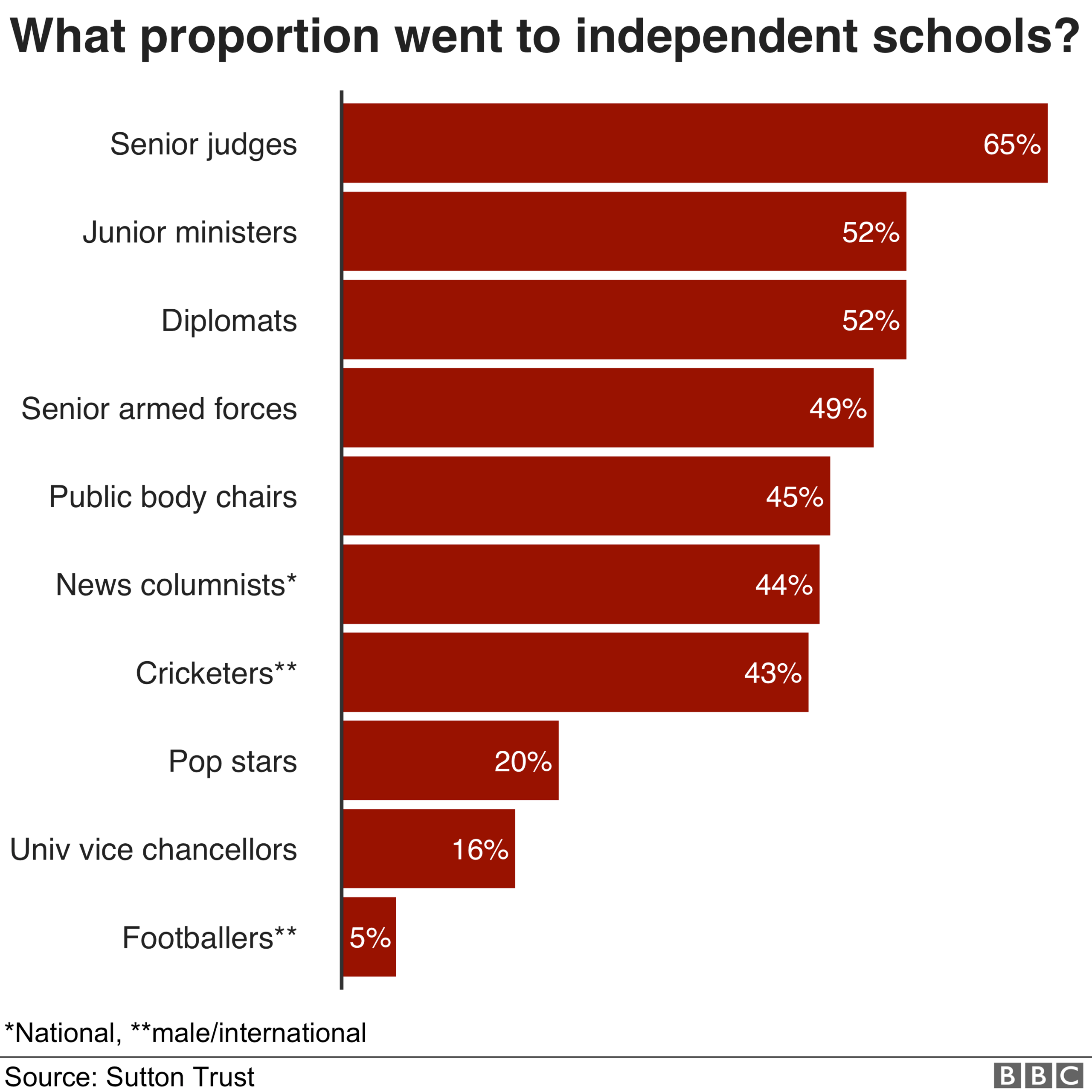
It might not be a huge surprise that the upper ranks of the judiciary, the diplomatic service, the armed forces and public bodies are stuffed by a disproportionate number of former public-school pupils.
But it might raise an eyebrow that today's pop stars are more likely to have gone to private school than university vice-chancellors - 20% compared with 16%.
For the purposes of this survey, a "pop star" is someone from the UK who has had a top 40 selling album in the past four years.
This echoes warnings that the creative industries, once an express train of social mobility, are increasingly becoming populated by the offspring of wealthy, well connected parents.
But pop stars are out-poshed by international cricketers and national newspaper columnists, defined as those covering news, politics and policy rather than other "lifestyle" writers.
In terms of the overall "power gap", the report says 39% of people in these elite groups were privately educated, compared with 7% of the population.
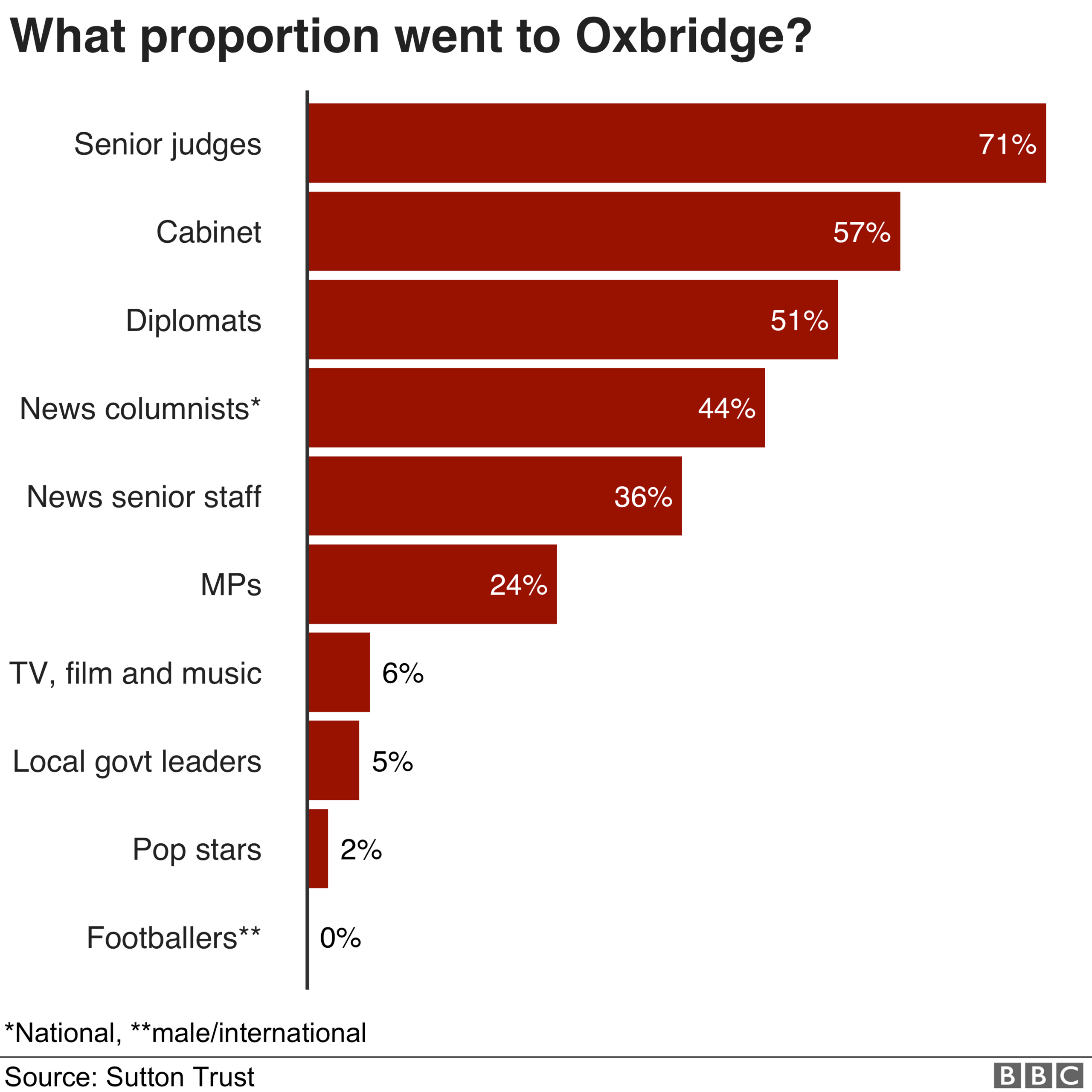
The battle for the leadership of the Conservative party is between two Oxford graduates - and these figures show that the Oxbridge contingent remains prominent in the areas around politics, the law and opinion-formers in the media.
There are 24% of MPs who are from Oxbridge - but there have been significant changes over the longer-term.
House of Commons figures show that in 1979, when Margaret Thatcher became prime minister, 73% of her Conservative MPs were privately educated - a figure that it is now 45%.
Among Labour MPs, 15% were privately educated.
But the Oxbridge influence across the House of Commons remains significant. Among the chairs of select committees, one in three is Oxbridge.
There might also be wider questions about diversity in politics - considering gender and ethnicity as well as where someone went to university.
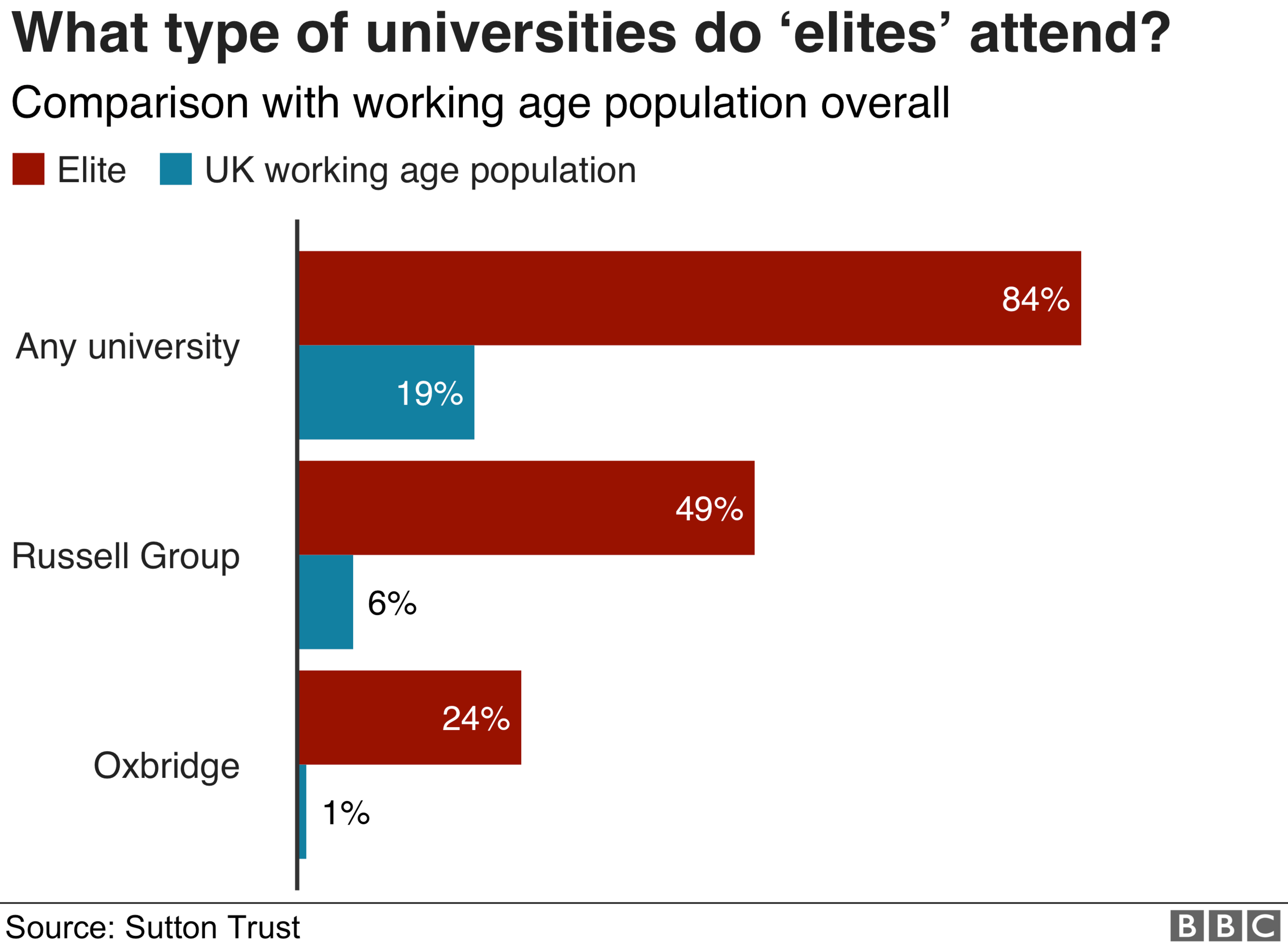
This report focuses on the dominance of Oxford and Cambridge in public life - but what might get lost in this debate is that the vast majority of the UK's working-age population didn't go to any university at all.
This shows how, in educational terms, this elite 5,000 are very different from the rest of the country.
Their question is not whether to go to university, but which university.
Perhaps the most striking statistic is that 24% of this top group have gone to Oxbridge, while only 19% of the working population have been to any university at all.
It might also suggest why university tuition fees remain such a politically charged question, when almost nine in 10 MPs have been to university themselves,
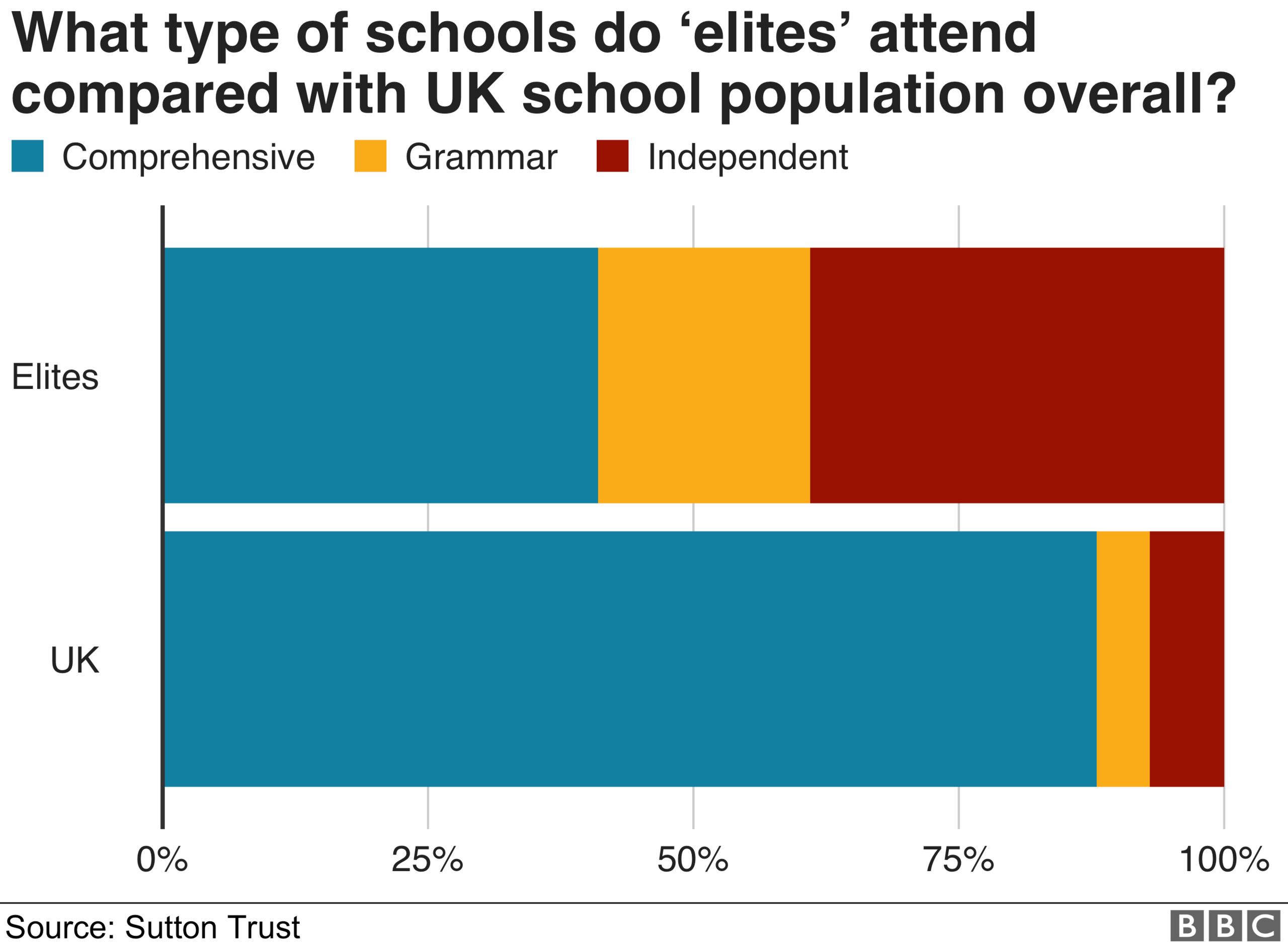
In the general population, going to a non-selective state school is by far the most typical experience.
But among the elite, the comprehensive school is a minority background, where independent and grammar schools are more usual.
The figure for private school attendance is 7% - but it's worth recognising that this changes through the school years, so that among those taking A-levels or equivalents, about 18% are in private school.
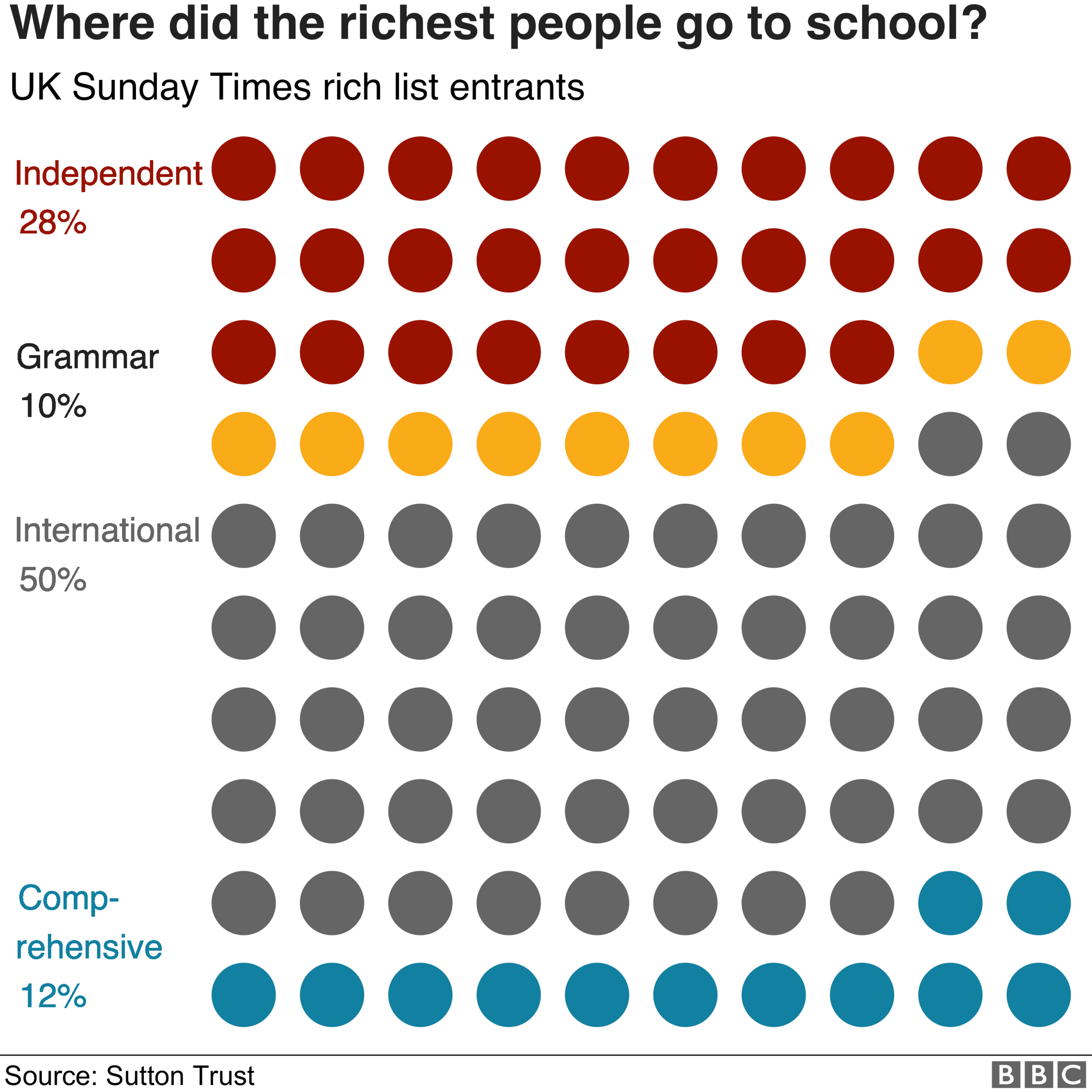
When it comes to showing us the money, this is where the comprehensive students are least represented.
Among those in the UK in the Sunday Times Rich List, there were 34% from independent schools compared with 12% from comprehensives.
The biggest group of all were not educated in the UK at all, including migrants who made their wealth after coming to the country.
Why does it matter?
The report warns that social mobility is "worryingly low" and Dame Martina Milburn, who chairs the Social Mobility Commission, questions whether "this small elite" should have "such a big say in running the country".
These are the nation's decision-makers - and this report raises the question of whether rulers and the ruled should have such different backgrounds.
It isn't only about politics. It asks whether so many opinion formers and the artists who hold up a mirror to our age should be drawn from such a narrow pool.
What are the responses?
The head teachers' leader Geoff Barton said: "State schools work tirelessly to make social justice a reality but the dice are loaded against them in a society where both privilege and disadvantage are perpetuated from one generation to the next."
"The old boys' network and the old school tie still hold back talented and hard-working people from less privileged backgrounds," said Labour's shadow education secretary, Angela Rayner.
But Julie Robinson, chief executive of the Independent Schools Council, warned about assumptions "based on misconceptions or stereotypes" and said many private schools had partnerships with state schools or offered reduced fees for low-income families.
A spokeswoman for the Department for Education said: "For too long professions like law, politics and journalism have been dominated by independently schooled people.
"By making sure that our state schools offer a comparable education to private schools, we will drive down these inequalities."
- Published21 May 2019
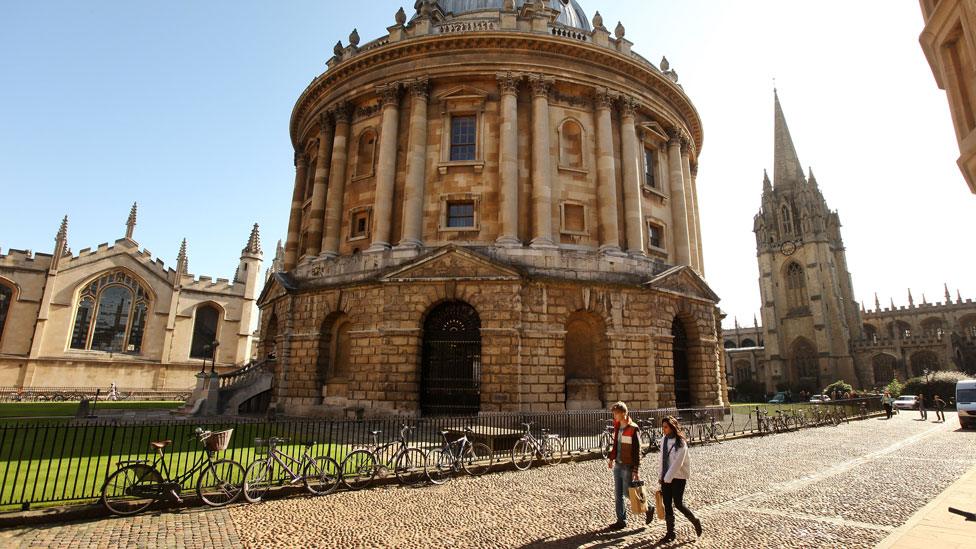
- Published31 October 2018
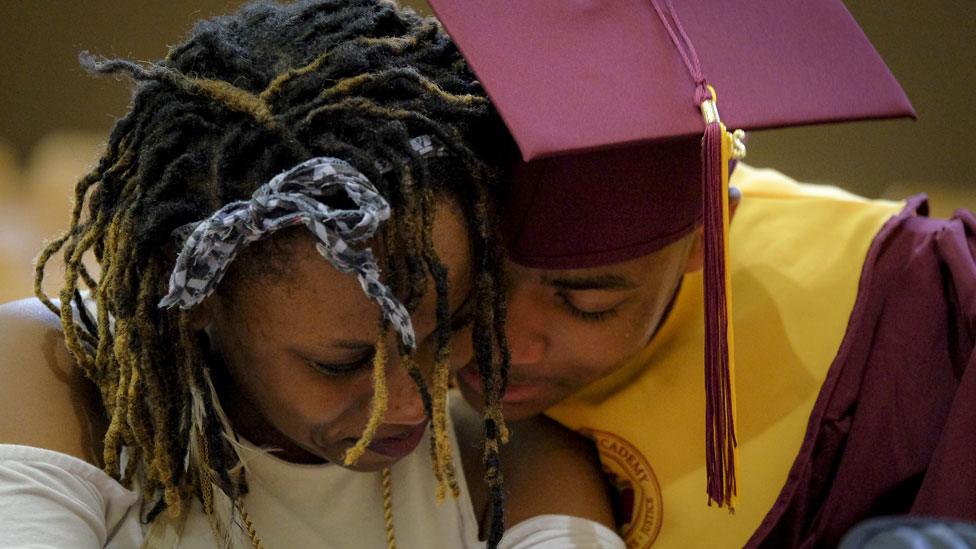
- Published7 December 2018
